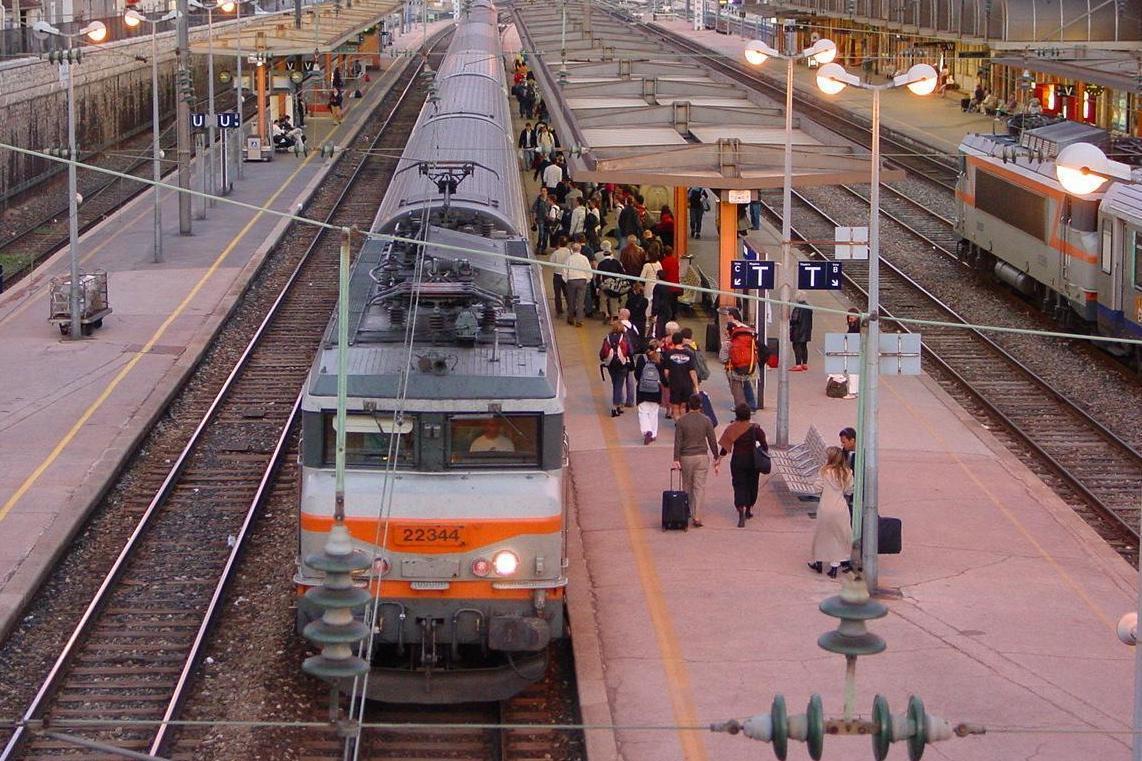France strikes are par for the course, say experts
The Man Who Pays His Way: French Railways are magnifique, but they are losing £5,000 a minute

“French Railways (SNCF) have the fastest trains in Europe,” says Everybody’s Travel Guide to France. “Their reliability and punctuality are unrivalled.”
A hint that this excellent guidebook dates from the mid-1950s is revealed in the next sentence: “In the majority of long-distance trains the third class seats are padded.” Yet in the 21st century, the Société Nationale des Chemins de fer Français remains magnifique.
Take the journey from the northernmost city, Dunkirk, to the southernmost town, Cerbère. The distance of more than 800 miles between these attractive seaside resorts can be covered in under 10 hours. Each change of train offers a civilised break: coffee at Lille, breakfast in Paris and an afternoon snack at the station defined by Salvador Dali as the centre of the universe: Perpignan.
The journey itself comprises an impressionistic sweep across the meadows of Picardy, past the spires of market towns and the Paris banlieues, and then a southbound hurtle towards summer through the broad and beautiful valleys of the Yonne, the Saone and the Rhone. Savour the sharpening light, and the long, sweet warming of the air and the trackside colours en route to the Mediterranean. And all from the comfort of a padded seat.
If you take that 7.24am departure from Dunkirk you can expect a 4.22pm arrival in Cerbère. But until the end of June that assurance comes with a big asterisk attached: no service on 8 and 9, 13 and 14, 18 and 19, 23 and 24 April … a rhythmic regularity akin to a 1950s train pottering through Provence.
Strikes are scheduled for two days out of five right through to 28 June, as Guillaume Pépy, the boss of the state enterprise, takes on the rail unions with the backing of President Macron.
Les cheminots, as French rail workers are known, enjoy conditions that are the envy of their counterparts in Britain. They get guaranteed pay rises and jobs for life, or at least until their early fifties, when they can retire on full state pensions and roam around France’s excellent rail network with their families, who enjoy concessionary travel.
Bon chance to them for negotiating such well padded terms of employment in the 1950s – when, to quote Everybody’s Travel Guide to France again, “the intelligence, alertness and industry of her people” was allowing the country “to take her rightful place amongst the great nations of the world”.
The trouble is: SNCF is £40bn in debt, a figure increasing by about £2.5bn every year; if, like me, you find big numbers difficult to contemplate, just focus on losses rising by almost £5,000 every minute. However magnifique the French rail network may be, such losses look unsustainable. And life will get tougher from 2020, when France is obliged by the EU to open up its long-distance routes to competition.
So what do we do with a problem like SNCF? A question for the UK’s leading rail historian, Christian Wolmar. He happened to be transport correspondent for The Independent in 1995, at the time of the last great state-union confrontation on French Railways. (It didn’t end well for the government.)
“Industrial relations is a slow business,” he told me from his holiday in France, where he is travelling by rail, strikes permitting.
“The more moderate union leaders recognise that reform is necessary and unavoidable. But to do it in one big bang, with an all out attack, is a mistake – as it is with the intractable dispute at Southern in the UK.
“You have to work away at this, and do it ‘softly, softly’ over the space of some years.”
Across the Rhine in Germany, Nicky Gardner, co-author of Europe by Rail, was more philosophical.
“The brilliant thing about a strike in France is that it’s a piece of theatre, even part of the performance of national identity,” she says. “I’m always impressed how the French survive (or ensure) strikes. They don’t seem so exercised by them as Brits would be.
“That is why France is so interesting, so entertaining. The strike becomes part of the drama of life, but the media chatter about culture, language and what it is to be French just bubbles on.”
I went back to my 1950s guidebook, and its section on The People. “The Frenchman,” I learnt, is “thrifty and hardworking, with an unerring sense of values, he yet cares for good living and bonhomie.” Oh, and he is: “A strong defender of his own rights.”
Travellers on Europe’s leading rail network face a long springtime of discontent.
Join our commenting forum
Join thought-provoking conversations, follow other Independent readers and see their replies
Comments
Bookmark popover
Removed from bookmarks